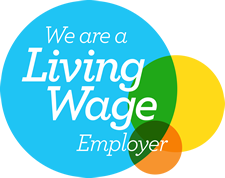
Insights
Helping not-for-profit organisations develop and sustain
the highest levels of employee and volunteer engagement

Insights
On 2-4 October 2019, Agenda Consulting Senior Consultant Catherine Wearden attended the CHS Alliance Humanitarian HR Conference in Antwerp, Belgium. At the conference, the spotlight was on trust and the event explored how humanitarian HR professionals could be at the forefront of driving positive cultural change within their organisations.
In this blog, we outline some key lessons from the conference that are relevant for HR professionals in any organisation.
“Trust affects a leader’s impact and the company’s bottom line more than any other single thing.” (Forbes 2014).

The CIPD ran a study in 2013 and found that trust is fundamental to sustainable and effective relationships.
The benefits of a high trust environment include:
It is not easily won, but when it is there, it makes everything work better. Stephen M.R Covey says that organisations move at the speed of trust.
On the other side, if trust is lost, people feel hurt and betrayed. They often blame themselves for trusting the person or organisation they trusted and in turn, they question their own judgement.
At the final keynote speech in the conference we were asked to think about a time when we felt betrayed and lost trust in someone and remember how that made us feel.
In the CIPD study they discovered that employees are more likely to trust senior managers when they feel they are listened to and their views are taken into account when decisions are made.
At Agenda, we often see in the results of organisations’ employee surveys that feeling senior leadership understand their views and opinions is a key factor in employee engagement.
It is vital, in order to earn and develop trust within an organisation, to find out what your people really think about working for your organisation.
Managers and leaders may believe there is a culture of trust in their organisation and can be surprised to find, after conducting an engagement survey, that their employees do not have the same perception.
At the conference, we were encouraged to always consider first the perspective of the least powerful in any given situation in the organisation we work for. If you want to build trust, you need to understand how your employees really feel. Those with the least power are the most vulnerable in your organisation (or at least that is how they feel) and so they often do not speak out openly.
We heard that it is vital to build trust in how decisions are made, and that trust is not necessarily built by the decision itself but by the process around how the decision is reached.
If people trust that you have listened to the right people in your process and that you are being fair, they can often accept decisions even if they wish another decision was reached instead.
Employees’ perceptions about reporting incidents such as bullying and harassment is an important area to ask about in employee surveys. At Agenda, we have found that asking employees whether they know how to report incidents and whether they feel safe to do so can be very revealing.
As we all know things can and do go wrong in every organisation, but the fall-out can be very damaging if we mishandle situations where serious incidents are reported. At the conference, we were encouraged to make sure that everyone up to Board level in our organisations knows what process will be followed when a serious incident is reported.
By being clear about how to report incidents and ensuring that each report is handled properly, we can build trust and avoid further damaging relationships in our organisation.
In 2007, a group of humanitarian organisations produced a report called “Building Trust in Diverse Teams”. They developed ten criteria:
If you have any questions about how a survey can help you to measure, earn and develop trust in your organisation,
feel free to get in touch with Catherine.
5 Linford Forum
Rockingham Drive
Milton Keynes
MK14 6LY
UK
Company No: 4509427
